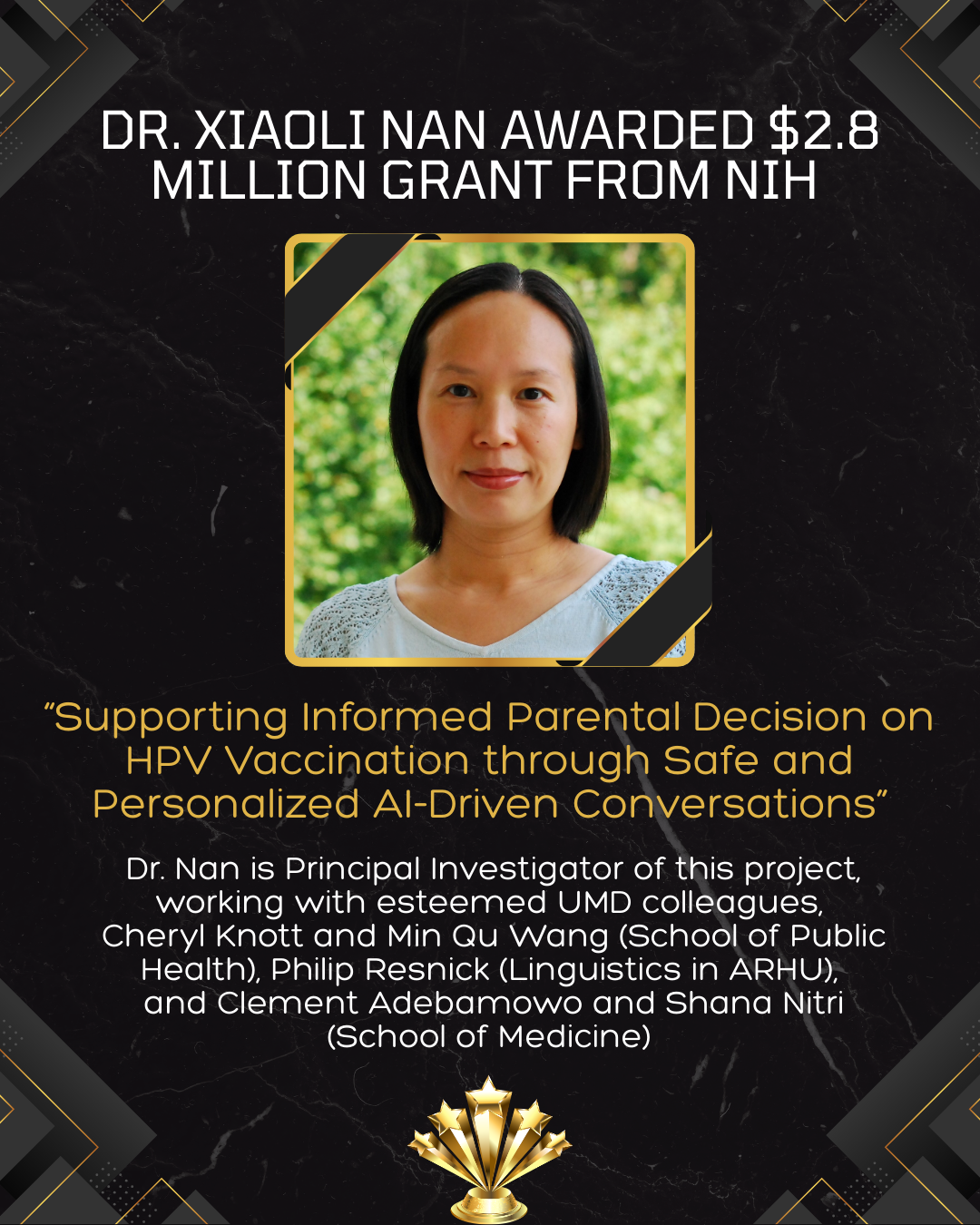Dr. Xiaoli Nan Awarded Impressive Grant from NIH
August 19, 2025

Congratulations to Dr. Nan and colleagues on this incredible accomplishment!
COMM Professor Xiaoli Nan and her colleagues have received a sizeable grant from the National Institutes of Health (NIH) ($2.8 million). Dr. Nan is principal investigator on the project, working with Cheryl Knott and Min Qi Wang (UMD School of Public Health), Philip Resnick (Linguistics in ARHU), and Clement Adebamowo and Shana Nitri (UMD School of Medicine).
The project is titled, "Supporting Informed Parental Decision on HPV Vaccination through Safe and Personalized AI-Driven Conversations." The total award amounts to $2,834,092.
The research team is integrating AI tools into health communication contexts with a focus on addressing low HPV vaccine rates. This grant builds on COMM's and ARHU's work in artificial intelligence with important applied health communication impacts.
The Project Summary is as follows: This project aims to support informed decision making about Human Papillomavirus (HPV) vaccination among parents of adolescents in the United States through AI-powered, personalized health communication. Although the HPV vaccine is safe and highly effective in preventing several types of cancer, vaccination rates among U.S. adolescents remain below national goals. To help close this gap, we developed an AI chatbot that delivers evidence-based messages tailored to individual concerns and communication preferences. Grounded in health behavior theories and message design principles, the chatbot personalizes both the content (e.g., addressing specific concerns) and the format (e.g., message framing) to support informed parental choices. We will refine the chatbot through a user-centered design process involving parents and health professionals, then evaluate its effectiveness in two randomized controlled trials—one conducted online and one in clinical settings. Key outcomes will include attitudes toward HPV vaccination, intentions to vaccinate, and verified vaccine uptake. This innovative and scalable approach has the potential to improve vaccine communication and inform the broader use of AI tools in public health.
We are so very proud and impressed by your work, Dr. Nan! Congratulations!

